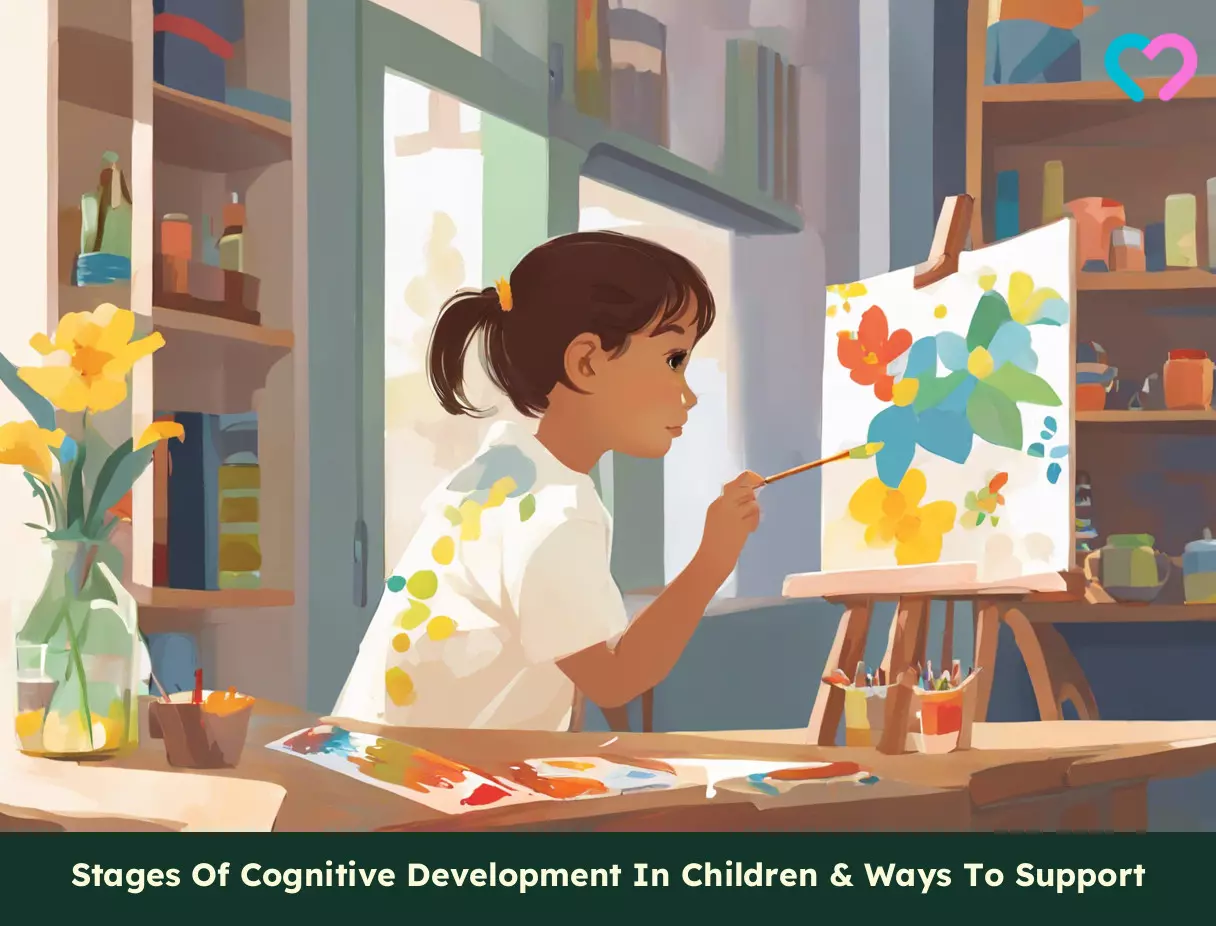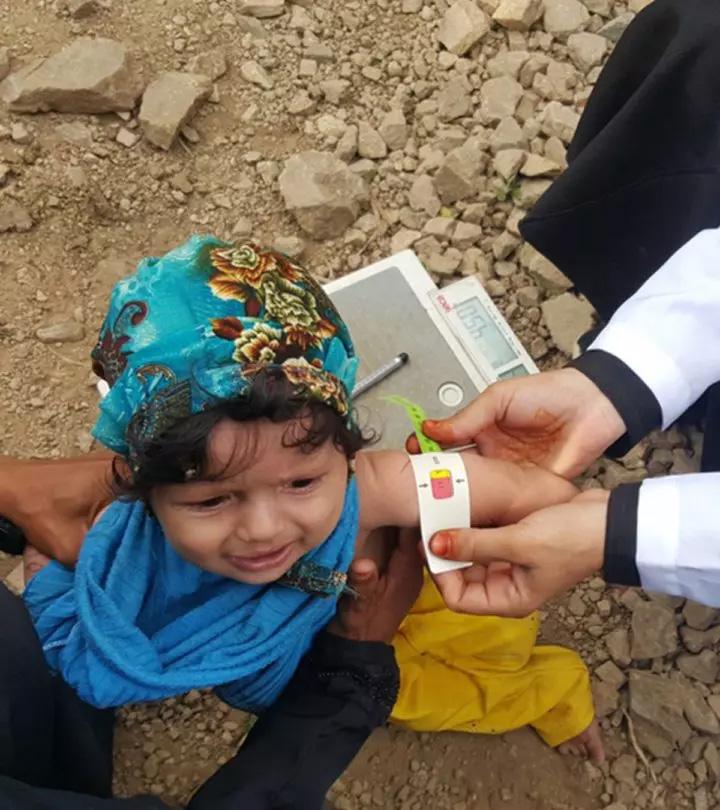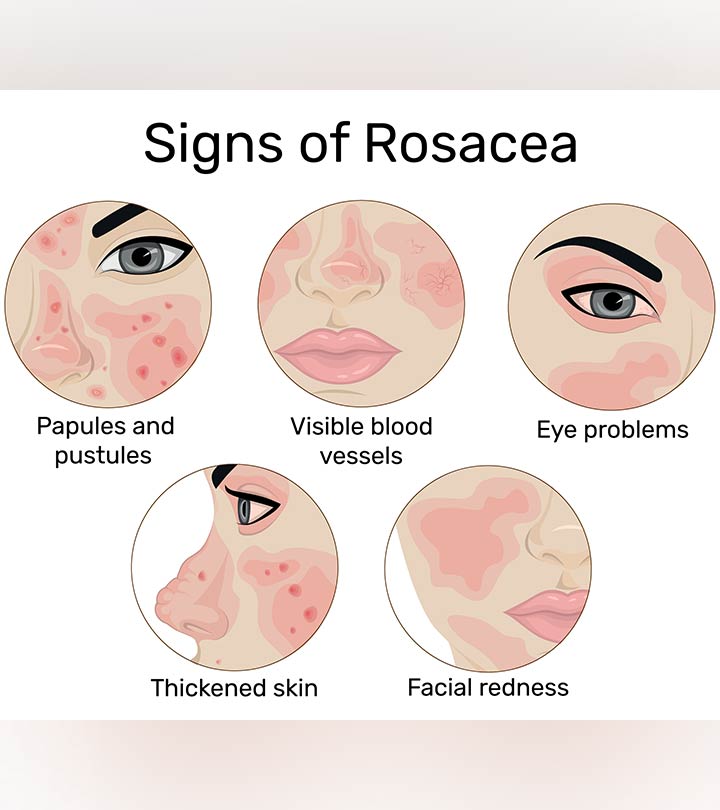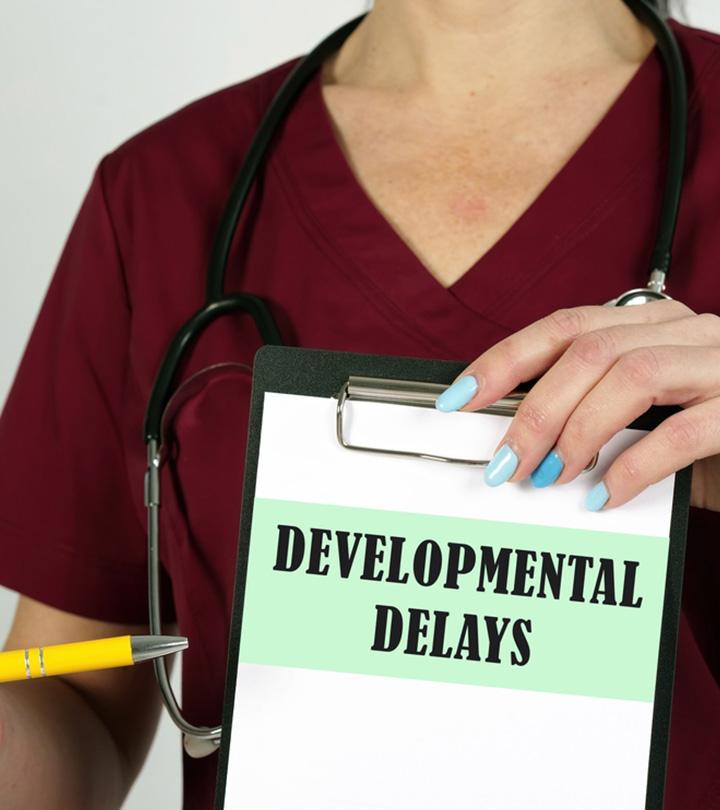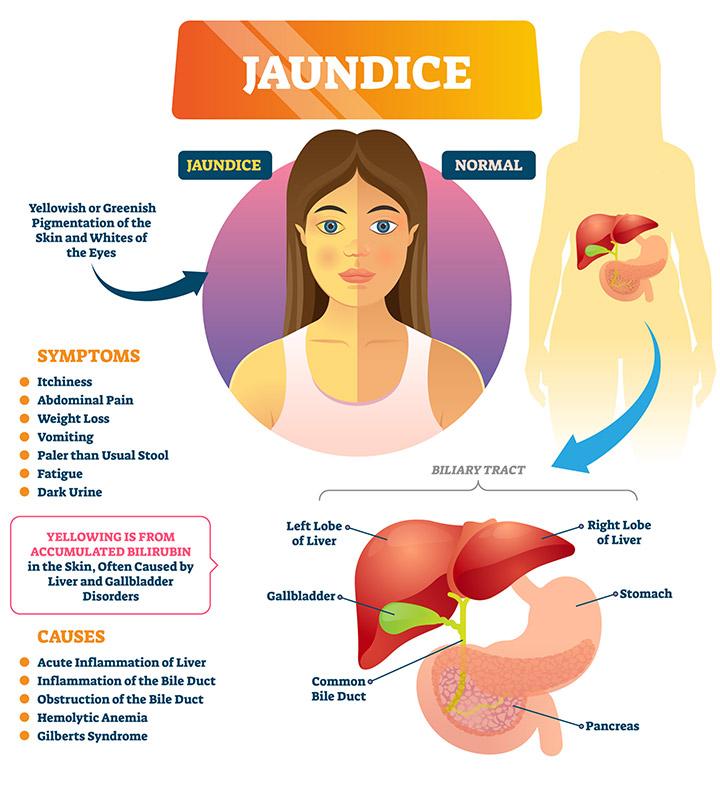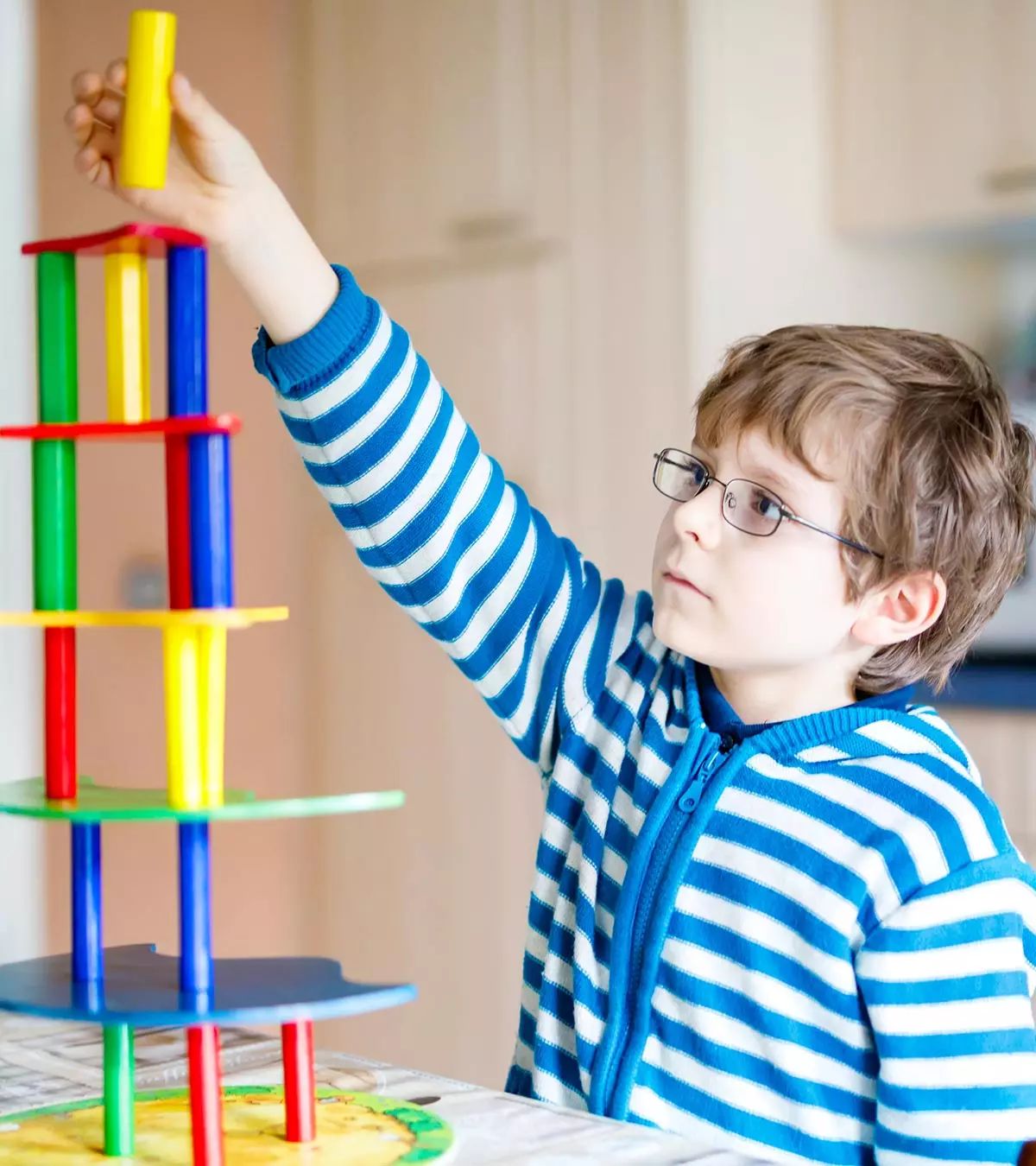
Image: ShutterStock
The majority of people believe that “cognitive development” refers to one’s potential to learn and obtain an education. However, cognitive development in children is not restricted to a child’s academic qualifications and intellectual achievements. The brain of a child develops gradually, allowing them to reason and learn, in addition to remembering and memorizing. Children go through several phases of cognitive development from infancy to puberty, with each stage laying a firm foundation for the next. This post explains cognitive development and functioning in children, its stages, and how parents may contribute to their children’s intellectual growth.
What Is Cognitive Development In Children?
Cognitive development in children refers to the development of their thinking process that involves the processing of information, reasoning, language development, intellectual development, and memory. A child’s cognition also helps them to explore and resolve things (1).
Cognitive development is important in early childhood through adolescence as it is associated with brain development. The development of the thought process enables children to understand the world around them (2).
Developmental milestones like attention and perception play a critical role in cognitive development, with babies learning to distinguish between different shapes, colors, and sounds as they grow. As children develop problem-solving skills, they begin to tackle increasingly complex challenges and learn to navigate the world around them.
This development, however, happens over the course of an individual’s childhood.
What Are The Stages Of Cognitive Development In Children?
Cognitive development in children takes place at different stages. A profound theory on children’s cognitive development was put forward by a Swiss psychologist named Jean Piaget in 1952. According to Piaget’s theory, there are four stages of cognitive development in children (3).
1. Sensorimotor stage (birth to 2 years)
Image: Shutterstock
This is the stage of cognitive development in early childhood when infants and toddlers learn about the world around them through the senses, like touch, hearing, taste, and vision, to manipulate things.
Characteristics of this stage
- The infant understands the sensations and movements.
- The child learns to observe, listen, and grasp.
- They learn that their actions can have consequences, or make something work. Infants start crawling, walking, and perceive the languages they listen to.
- They start learning that objects continue to exist even if they cannot be seen. For example, hide an object that an infant or a toddler has been playing with. An infant may think it has disappeared, whereas a toddler will start searching for it, an indication that he/she is reaching the developmental milestone.
- They start learning that the objects and people around them are different from them and learn to identify them with names and words.
2. Preoperational stage (2 to 7 years)
This is the stage that builds the foundation for language development.
Children also start imagining, memorizing as well as representing things symbolically.
Characteristics of this stage
- Children learn to think and use pictures and words to represent objects.
- They are egocentric and lack understanding of things from others’ perspective.
- They start understanding the language better.
- They develop the skill of pretend play and imitation. They also begin to draw or sketch the things they see around them.
3. Concrete operational stage (7 to 11 years)
This is the middle childhood cognitive development stage, which marks the major changes in language, memory, and mental processing in children.
Characteristics of this stage
- Children develop logical thinking and have concrete thoughts.
- They become less self-centered as they begin to think about how others may feel or think.
- They feel that their thoughts are unique and nobody else shares the same feelings or thoughts.
- At this stage, kids may not understand the hypothetical concepts or abstract thinking.
4. Formal operational stage (12 and older)
At this stage, adolescents develop the ability to understand abstract ideas and are capable of thinking scientifically and drawing a solution for a problem.
Characteristics of this stage
- Children start thinking about moral, social, and political issues.
- They are capable of deducing logical reasons for specific information.
While these stages of development occur naturally, support from the parent and caretaker is necessary for it to occur without any hindrances.
How To Develop Cognitive Skills In Children?
Parents can play a key role in the intellectual development of a child. The Centers for Disease Control and Prevention approximates that roughly 6.5% of children between the ages of three to 17 in the United States encounter a learning disability.
As a parent, you can encourage your children to explore things to improve their ability to think and learn. You can also put forth questions that enable them to find a solution to a problem. Here are a few more ways in which you can promote cognitive development in your child.
- Interact: When you talk to your baby, use names for things that are commonly used. They learn the names of things and people when they hear you say it.
Image: IStock
- Touch and explore: Let them touch and explore the things they come across. Information processing and spatial awareness are key components of cognitive development, helping children to understand and navigate their physical environment and process information effectively.
- Identify sounds: Teach them to identify the different sounds they hear every day and relate it to the object or person.
- Sing: Sing a song and get them to sing along with you. It helps them associate the words with the objects or images in a book.
- Identify alphabets: Executive functioning skills, such as working memory, mental flexibility, and self-control, are essential for children’s academic success and overall cognitive development. Expose the toddlers to books or puzzles that contain the letters of the alphabet. It is the best way to introduce them to the alphabet.
- Shapes and colors: Introduce them to shapes and colors by describing the objects.
Image: IStock
- Engage in activities: Try to find out what your child is interested in and encourage them to do that more often. For example, if the kid loves sketching or painting, then encourage them to paint more. If they like books, get them new books they can read.
 Quick tip
Quick tip- Go to interesting places: Take them on hikes, walks on the beach and in the forests. Children must be exposed to nature from a young age. Play games in the park with them to help develop their motor coordination skills. Physical outings are a good way to get them away from laptops and smartphones. Plenty of exercises will help them to get good quality sleep at night. Outdoors is also a good way to interact with other children and develop their social cognition skills.
Image: Shutterstock
- Answer their questions: Patiently listen to your child’s queries and give them a logical explanation using examples or demonstrations. Never discourage children from asking questions. They won’t always comprehend what is being told to them. Try and make it as simple as possible. Children are curious by nature.
- Offer choices: Provide them with choices and let them make their own decisions.
- Exposure to games: Expose them to a variety of games that improve their creativity and problem-solving skills.
Image: IStock
Though it requires a good amount of time for a child to understand things, they eventually learn it. You can also try a few activities for active cognitive development.
Cognitive Activities for Children
There are various activities that you can try to help improve a child’s cognitive skills. The table below lists an activity for cognitive development in children of different age groups.
| Cognitive Development | ||
|---|---|---|
| Age group | Activities | |
| Infants (6 to 12 months) | Touch and grasp: Infants can improve their sense of touch and their grasping reflex with soft toys. | |
| Toddlers (18 months to 3 years) | Play with blocks: Stacking the blocks helps toddlers improve their learning and thinking skills. | |
| Preschoolers (4 to 6 years) | Compare and match: Comparisons of shapes with objects around is a great way to improve their observation, memory, and learning skills. | |
| School-age children (7 to 12 years) | Play games: Board games, simple crosswords, word finders are a few games that can encourage their learning and thinking skills. | |
| Adolescents (12 to 18 years) | Play mind games: Playing chess, solitaire, poker, and checkers is a good way to exercise the minds of teenagers. | |
You can try various activities to help your kid reach cognitive milestones when they should. In addition to these, playing in the outdoors helps them stay physically active that in turn benefits mental health and improves mental acuity.
Frequently Asked Questions
1. What is the most important stage of child brain development?
As per scientific research, the initial two to three years in a child’s life are most important for their cognitive development (4).
2. What age is cognitive development complete?
According to a study, the development of the brain’s prefrontal cortex (which controls cognitive functions) is accomplished by 25 years of age (5).
3. What are the factors affecting a child’s cognitive development?
Cognitive development in children is multidimensional as it helps them understand the world around them. Cognitive skills evolve through different stages in children. Each skill is acquired as the child reaches a particular developmental milestone. These are several activities your child could engage in to develop their cognitive skills. Encourage your children to participate in the above activities. Understand that each child is unique and learns a skill at their own pace. Just introduce them to the activities and let their mind take over the task.
Infographic: Important Cognitive Skills Children Should Possess
Cognitive skills are indispensable for young children to process and segregate information. Check out this infographic, where we enlist some of the most crucial cognitive skills children should possess to excel academically and beyond. Illustration: Momjunction Design Team
Key Pointers
- A child’s thinking and intellectual development is referred to as cognitive development.
- Cognitive development stages in a child include the sensorimotor stage, preoperational stage, concrete operational stage, and formal operational stage.
- Interacting with the child, singing, and talking to them can help develop their cognitive skills.
- Parents should choose cognitive activities based on their child’s comfort and avoid forcing them to do something.
Image: Stable Diffusion/MomJunction Design Team
In this video, we will look at how games can help children develop cognitive abilities during their early years. Discover successful techniques for using games as tools to improve problem-solving.
References
2. General Cognitive Changes Adolescents Experience; HHS
3. Piaget; NCBI
Read full bio of Dr. Ellapen Rapiti
Read full bio of Swati Patwal
Read full bio of Apoorva K





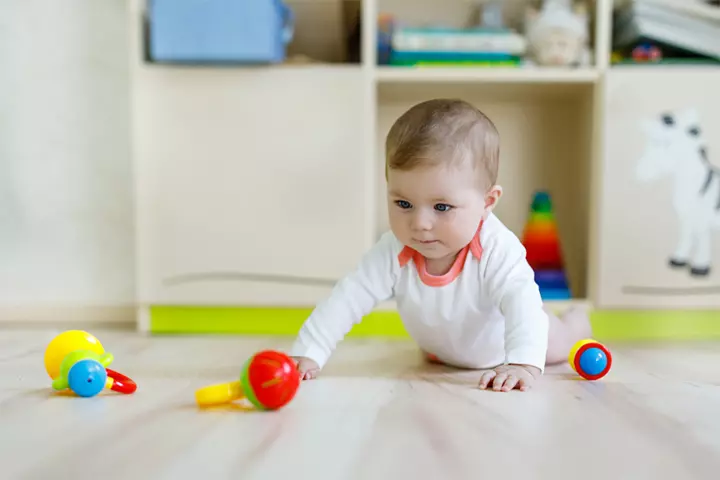

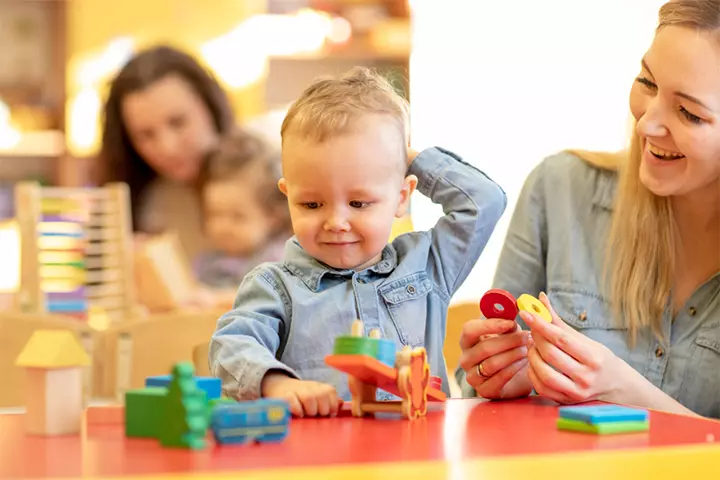
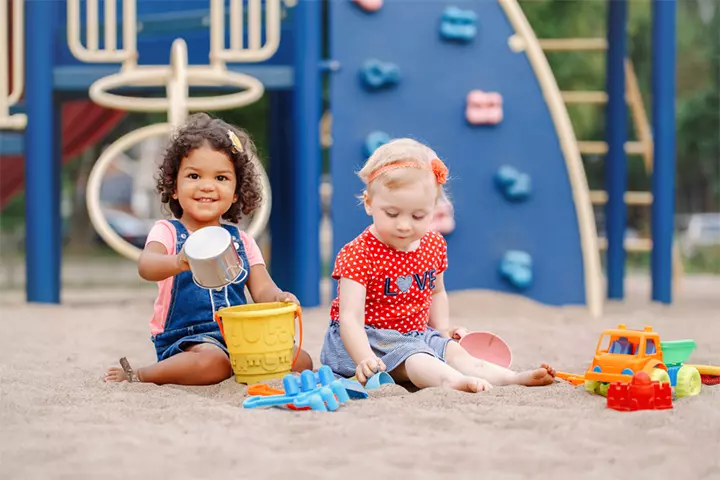
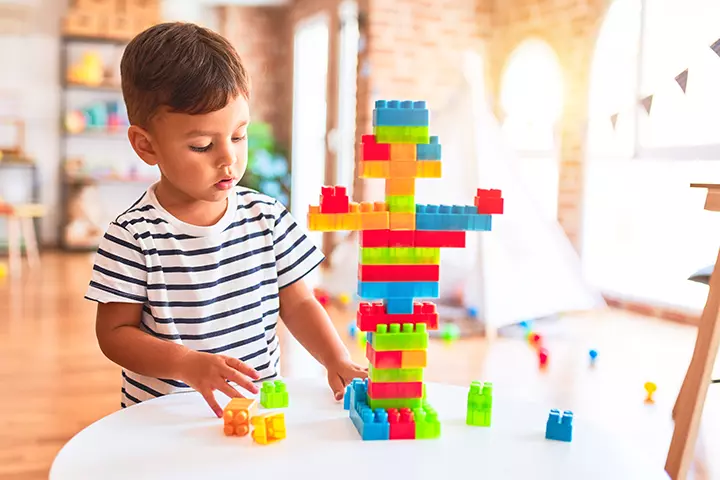
 Point to consider
Point to consider
